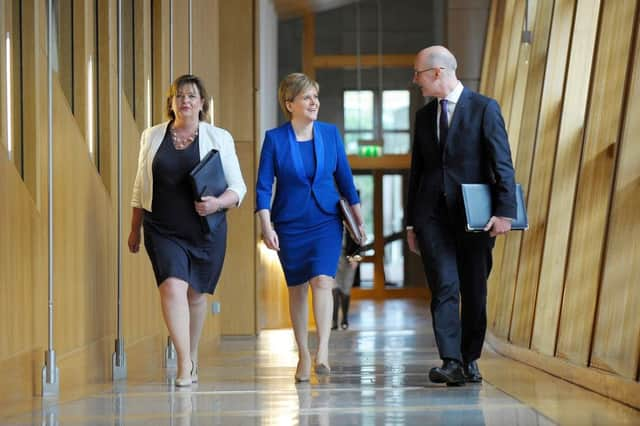Leader comment: Referendum rethink was the only option


Yesterday’s statement by the First Minister was long-awaited, but it did not represent a carefully constructed shift of strategy. Instead, it was based on common sense, and acknowledged the public mood.
Critics rounded on Nicola Sturgeon for not ruling out a referendum for the duration of this current Parliament, insisting that nothing had changed. In one way, it is true that little differs from where we were at the time of the election, with Ms Sturgeon admitting in the closing stages of the campaign that her timetable for a referendum had slipped back. But the difference is that her previous shift was based on the time that Brexit negotiations would take. This time, she is tacitly acknowledging that a referendum will not be any time soon because it does not carry public support.
Advertisement
Hide AdAdvertisement
Hide AdHowever, Ms Sturgeon is entitled to retain a second referendum as an option, up until the end of this Parliament’s term in 2021. It is possible there will be no rise in support for independence during that time, but it is also possible that the Brexit process could deliver a grim scenario for the UK – no access to the single market, no trade deal, no “settled status”, and possibly no deal at all, with the UK feeling a damaging economic backlash after turning its back on the EU. That kind of circumstance, rather than the initial vote to leave the EU, could represent the kind of material change Ms Sturgeon has previously spoken of as justification for a second referendum. As we know, much can happen in three years. A worst-case scenario post-Brexit cannot be ruled out at this stage.
In the meantime, Ms Sturgeon must ensure that her administration, and her party, park independence for the next year – more likely at least two years – and allow full attention to be focussed on the domestic problems that need to be addressed. Opposition parties have a responsibility here too, if independence is to come off the agenda.
Asecond referendum remains a possibility, but its likelihood will be determined by factors outwith the SNP’s control. The electorate has made it clear that it will not be pushed into a second vote.